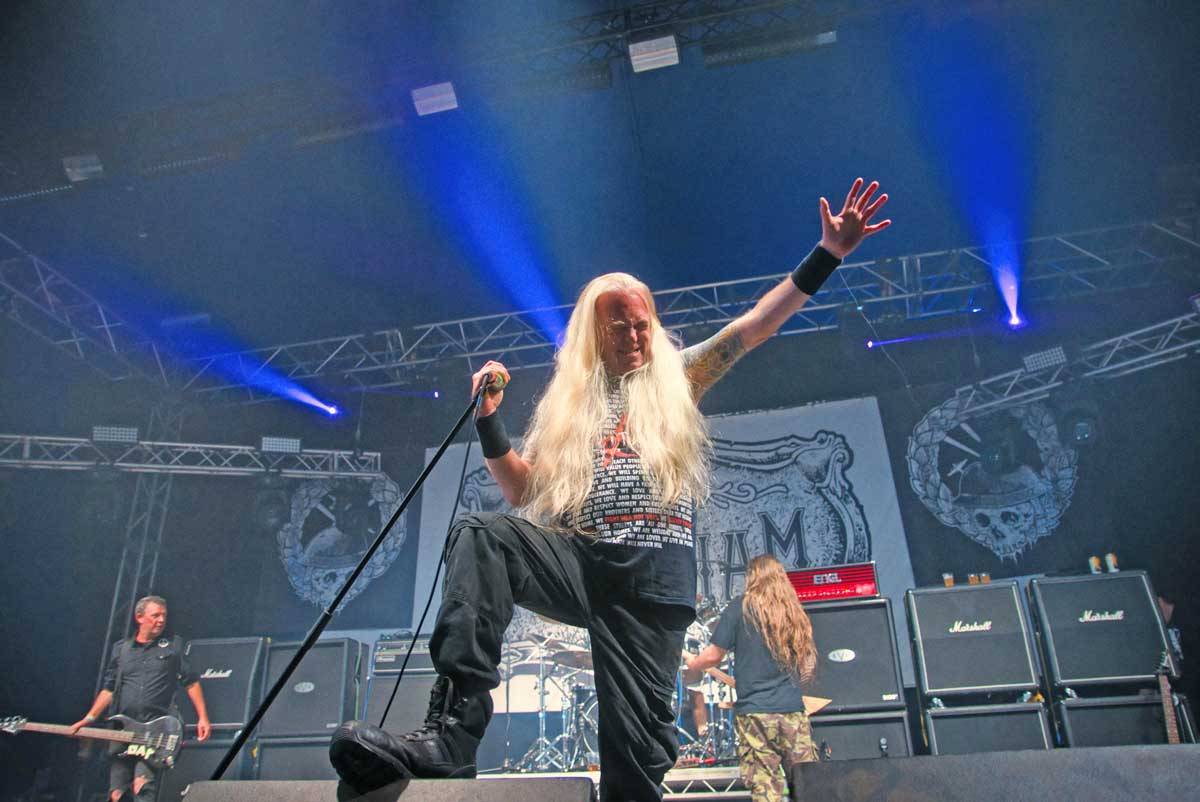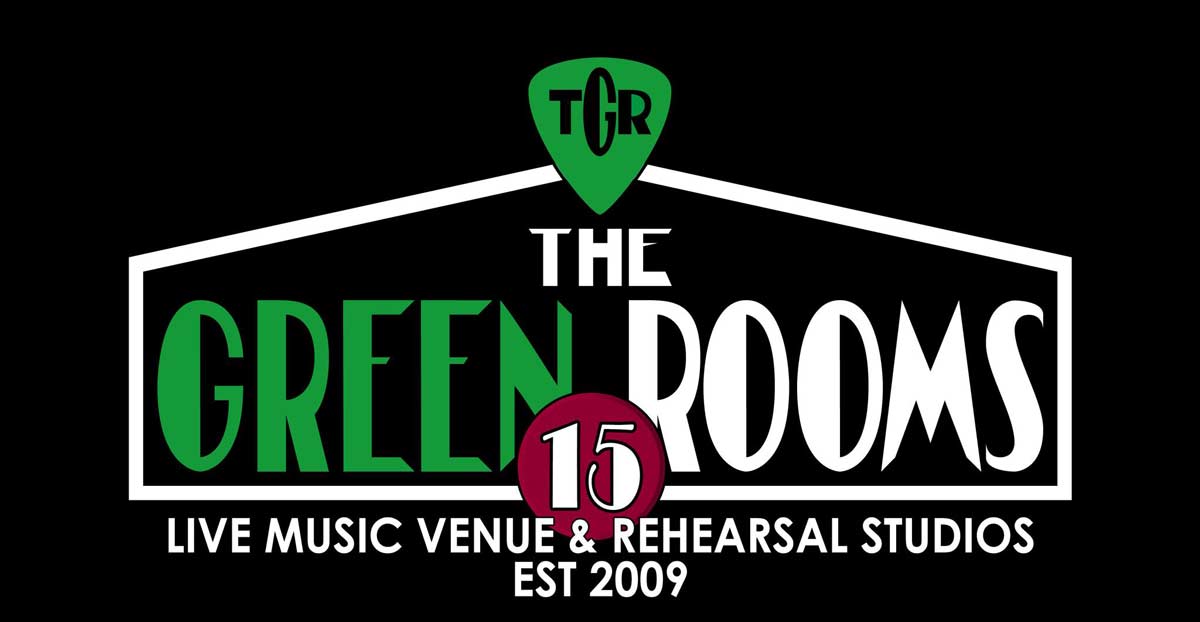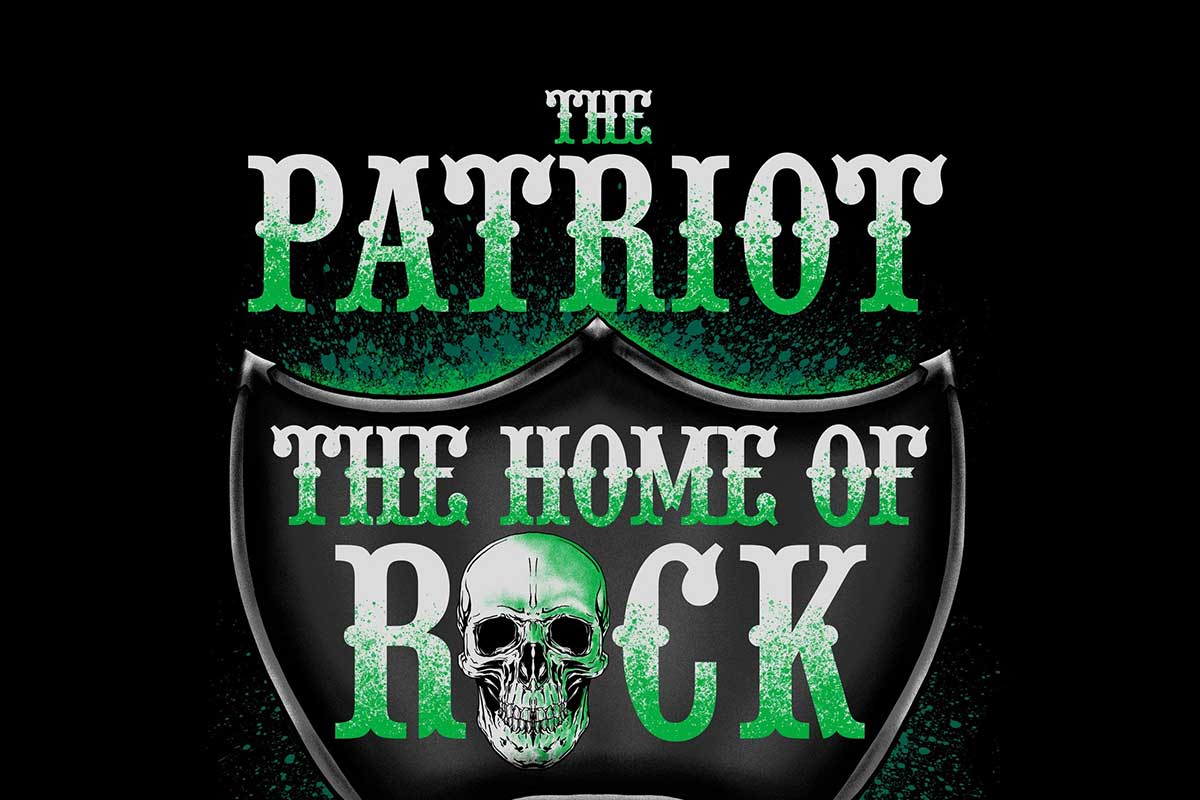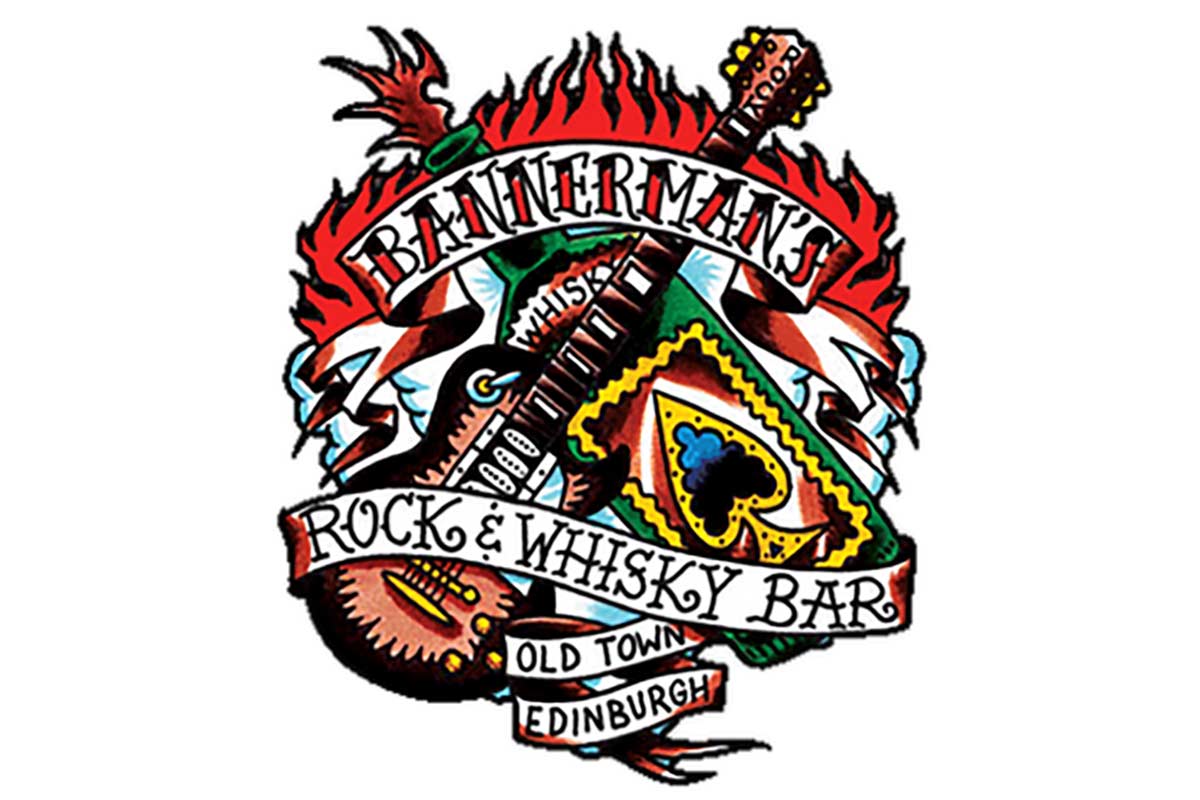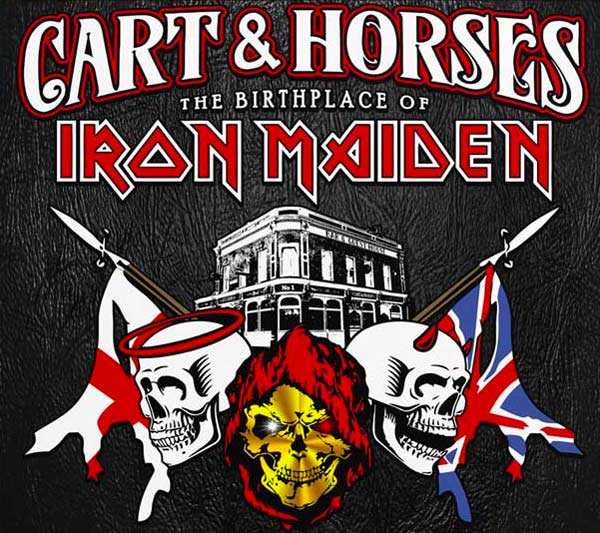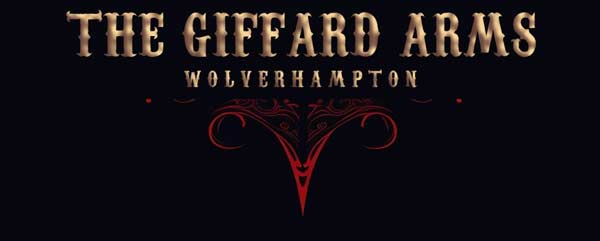My last conversation with Karl Willetts was almost two years ago when we spent time chatting about the impending release of the fourth Memoriam album, To The End. Move forward from 2021 to 2023, and I find Karl in his usual relaxed and jovial mood, all ready to talk about the band’s next album, Rise To Power. “I’m good,” he says. “It’s cold, it’s dark, it’s winter, as it should be, but it’s all good. The day has finished, I’ve just finished work, and here I am talking to you.” For those who missed it, you can read the review here.
Memoriam – Karl Willetts
Interview: Paul Hutchings
It’s another quality Memoriam album, the second instalment in the latest trilogy and the second to feature the line-up of Karl, Scott Fairfax, Frank Healey, and Spike T Smith. Memoriam have a work ethic that puts full-time artists to shame. These guys finish their day jobs and then do this.
That work ethic is a good place to start. “Well, it keeps us alive, keeps us focused, keeps us out of trouble,” he laughs.
That conversation prior to To The End saw Karl explain that despite the chaos in the world, he was in a good place because he had time to do the recording and demo vocals for the first time. Was he able to stay in that good place? “Yeah, absolutely. I think the thing you must do is learn from the experiences that you go through and adapt and change. And take on the things that work. So obviously, that process for To The End, where we extended the gap between albums from 12 months to 18 months, that extra six months really made a big lot of difference for us.
“You know, just a bit more relaxing, really. It gave us a bit more time to reap the benefits of what we’ve achieved previously as well. With this, it was 18 months, and we took on board what we’ve learned from the Covid experience and applying the 18-month process, we did it again. We will potentially be using that moving forward as well because that opportunity to demo the vocals in advance of going into the studio makes all the difference. It makes a massive difference for me personally and for the band. I’ve said before it gives me the opportunity to hone the lyrics and the structures of the songs completely, so I know exactly what I’m going to do when I go into the studio. The rest of the band knows what I’m going to do, so they can just adapt around the lyrics as well.
“So, when I do go into the studio to meet up with the lovely Russ Russell [producer], all I must do is concentrate on the delivery of the vocals. I don’t have to worry about the words or changing them around at the last minute, or changing the structures if they don’t quite fit. Because I’ve demoed them, I know they work. So yeah, that process works really, really well. So, we have retained it moving forward, and I think the albums do benefit from that as well.”
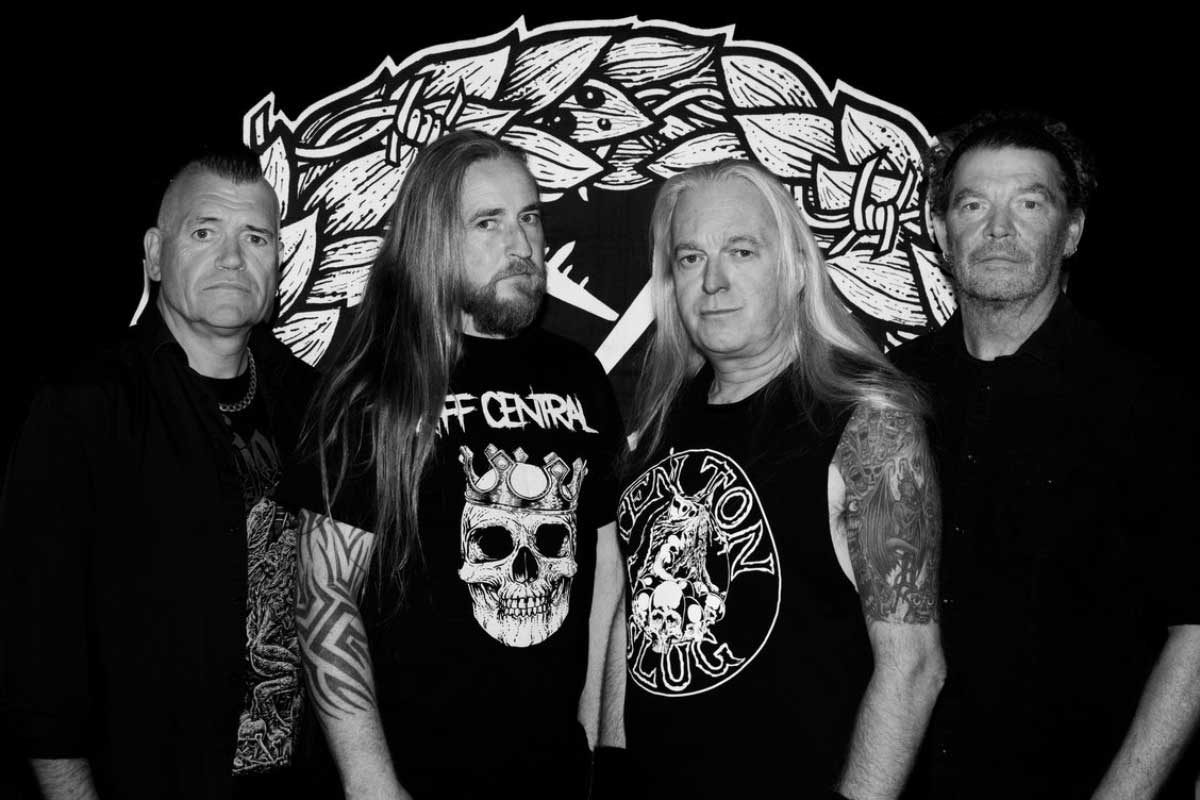
Without criticising any of the albums, I think Karl has a valid point. You can listen to Memoriam’s albums back-to-back, but you can also hear improvement as they move through. He agrees. “Absolutely. I mean, that’s all about growing and developing as musicians and as a band as well. You know it’s great that at this point of our career, we’re still doing that. We’re still kind of pushing forward, and we’re still taking chances and trying out different ideas and tones and textures and things we haven’t done before. Yeah, and that’s what makes it so exciting and so fresh and a great experience to be able to do that at this point in our lives, totally.”
Thinking back to 2021 and the live music scene, Memoriam managed to get a few shows, and if my memory serves right, they were all in the UK. Karl confirms. “We did about six or seven UK shows. We did more than we would ever contemplate doing in the UK normally because it was the only territory that was open for us to play. You know, we couldn’t go abroad, so yeah, it opened the door for us to play some more shows than we normally would do in the UK. I really enjoyed doing that. You know, getting back in touch with our UK audience was a good thing, and you know it’s always nice to be able to do a show and then go home at the end of the night and sleep in your own bed. Nothing beats that.
“It was good to be engaged with our UK fan base. Our friends, our family, you know. We made the most of that situation. We probably don’t need to play the UK for a while now! Normally we used to do a festival in the UK and our cash-for-Christmas gig. We didn’t do our cash-for-Christmas gig this year because we were kind of sick of playing the UK! We were very relieved at just getting back out there.”
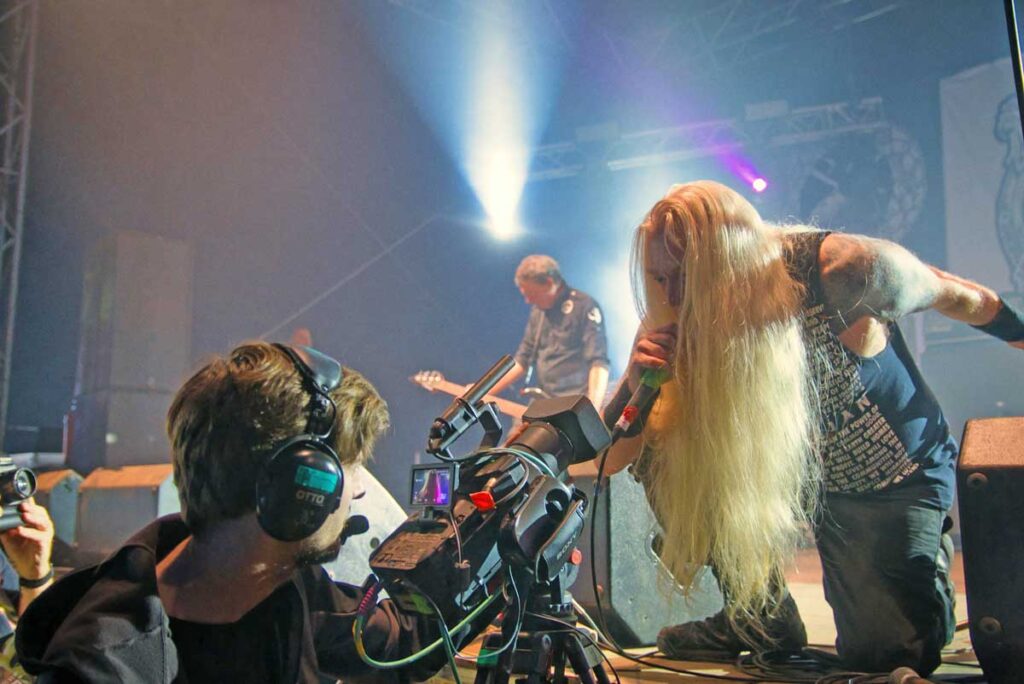
For those at that 2021 Bloodstock Open Air festival, you may have seen Memoriam absolutely level the Sophie Tent with a punishing set. Karl recalls the day. “I think our first major show post-Covid was at Bloodstock, and that was phenomenal. Joyful events, you know, just getting back amongst people and seeing all the people that you hadn’t seen for a long-time. It was a great atmosphere, and that was something to behold.”
When it was clear again, Karl and the band were keen to get back abroad. “Once the boundaries finally kind of came down, it was good to get back there and engage with what we potentially considered to be our main audience, mainland Europe. You know, it’s a little bit more difficult to get there and to engage with them these days due to the lovely issues that Brexit has raised.”
It’s well known that Memoriam has a stronghold of fans in Europe. As a seasoned musician, did Karl notice any difference in the crowds post-pandemic? “I think generally yes,” he says, “because people had an imposed and self-imposed lockdown and a break from engaging and going out and doing the things they enjoy doing the most. From my perspective, that’s playing gigs, and for a lot of people, it’s going to watch gigs. Generally, I felt that people seem more appreciative of the situation and aware that it was back, and the joy of us playing and engaging with the audience was really what made those gigs quite special.”
Karl then addresses the elephant in the room for all UK touring bands. “We started going back to mainland Europe, which is great, but there are all sorts of issues that have made it that much more difficult to do now that we are no longer a member of the European Union. You know, what with border control, passport control, security. Often, we’ve got quite tight connecting flights involved when we are travelling. With the added security control, in the UK, you have to get there two hours earlier because there is a lack of staff, and all this had a massive knock-on effect on quite a few shows we did.
“We would find that we could just about make it going through the separate passport lane rather than going through the standard biometric European one. We now have to wait in the queue with the rest of the world, which takes often takes an hour longer, and that just makes that margin of time to transfer through a central European country much more difficult. We often found that we could just about make it as individuals if we ran, but very often, almost 50% of our bags or our equipment didn’t.
“Hopefully, things are going in the right direction. The air industry is picking back up, and you know staffing levels are back on track and, hopefully this year, potentially a return to how it was before the pandemic hit us all.”
If you’ve read or heard interviews with Karl, you’ll know that despite the music that is Death Metal, old school Death Metal, his attitude is always positive. Even the songs, although they sound negative, they’re not. “Absolutely. I think that comes with age and experience, you know. I think the songs that I tend to write about have got an element of hope in them. There’s always a kind of joyous juxtaposition.
“For example, All Is Lost, from the new album, sounds quite a negative kind of thing. But that song is about hope in life, and there’s always, at the end of the song, a statement about living for the moment and enjoying what you have and doing what you can while you can, making the best of the situation. That’s what life’s all about. I think I’ve got to that point in my life now, at 56, I can write about those experiences. I probably wouldn’t have been able to write a song like that maybe 20 or 30 years ago.
“But now I’ve got to this point in my life. I kind of draw from the experiences we’ve been through, and that resonates with the people that listen to the music as well. A lot of people that listen to us have grown with us in age, and so we’ve all been through all these different experiences. We’ve all been through loss, sorrow, grief, mourning, and joy. You know all the essential parts of life and the kind of ingredients that make us the people that we are.
“A lot of the songs that I do are drawn from direct experience of life and always have kind of a positive message to them. I think that’s important, really, in that it’s always something positive to get from them. So that’s good.”
In Part Two, which you can read here, Karl talks about riffs, the inspiration he finds in the world and how Rise To Power sees some phenomenal performances.

